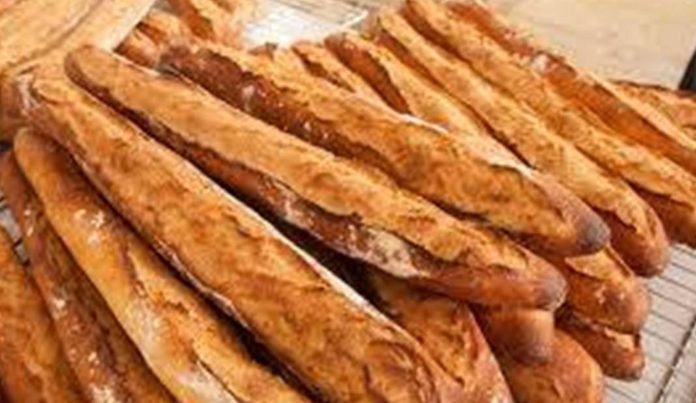By Nelson Manneh
As of July 1st, 2025, the cost of a loaf of bread in The Gambia officially rose from D10 to D12. The price hike, affecting both Tapalapa and Senfur loaves, follows a consensus reached between the government and the Gambia Bakers Union after weeks of negotiation. Despite the agreement between the government and the bakers to increase the weight of the loaf slightly, the timing and impact of this decision have stirred widespread concern among Gambians already struggling under rising living costs.
Bread is a staple food across The Gambia. It is a fixture in most households, eaten in the morning with attaya or in the evenings with stew or mayonnaise. For rural and urban families alike, bread is often the cheapest, quickest, and sometimes the only available meal. But the recent hike has turned that basic staple into a financial strain.
“I used to buy five loaves of Tapalapa every morning for my family. Now I can only afford three, and I have to split them among six people,” said Fatou Jabbie, a widow and mother of four living in Lamin. “We’re used to managing, but this is pushing us to the edge.”
The ripple effects have been felt in schools, markets, and workplaces. Bread with mayonnaise, previously sold for D20, is now going for D25 and D30. Bread with stew has jumped from D30 to as high as D45 in some school canteens. Some students are now skipping meals entirely or bringing food from home, when available.
Naffie Colley, a student at Gambia High School, explained how the price increase affects her daily routine. “My parents give me D100 every day — D50 goes into transport, and now bread with stew is D50. That’s it for me. I won’t eat again after breakfast until I get home.”
For parents like Lamin Jatta, a father of five from Bundung, the math no longer adds up. “Before, I could spend D50 on bread and make breakfast for all of us. Now I need D60 or D72. That means something else has to go — sometimes it’s lunch, sometimes it’s fare for my older kids,” he said.
Shopkeepers say they’re merely passing along the increased cost from bakers. “We didn’t ask for the increase,” said a vendor at Westfield. “We just sell it as we buy it. Even the bread with egg that I used to sell for D30 is now D40.”
Bakers, meanwhile, cite rising flour and yeast prices as the root cause. Alpha Omar Jallow, a baker in Bundung, emphasized that the government was repeatedly warned. “We are not happy about increasing prices, but we have families too. We told the Trade Ministry — flour prices went up, yeast too. They did nothing.”
For families already stretched thin, the timing could not be worse. Mariama Sowe, a mother of six in Brikama, said she’s started skipping meals to make sure her children eat. “That’s the only way. We can’t afford to feed seven people three times a day anymore.”
The broader economic effects are also drawing concern. A Latrikunda-based police officer, speaking on condition of anonymity, warned that more price hikes could lead to public unrest. “When bread becomes unaffordable, frustration builds. It’s more than just food — it’s dignity, it’s survival.”
Economic experts like Momodou Bah said the situation reveals a deeper fragility. “Bread is just the beginning. The cost of transport, rice, and oil have all risen. Without government intervention and investment in local alternatives, these shocks will keep coming.”
Even family heads in rural areas are raising the alarm. In Basse,Upper River Region, Kemo Ceesay, a retired farmer and father of eight, said the price hike has changed their meal patterns. “Now we skip bread for breakfast. We grind coos and cook it. But my grandchildren want bread. It’s painful to say no.”
In Bakoteh, Awa Saine, a single mother of five, described the emotional toll. “I used to make Tapalapa sandwiches for school. Now they go with nothing.”
In Wellingara, Modou Njie, a father of seven and a local taxi driver, said the bread price hike is symbolic of a deeper crisis. “It’s not just the bread, it’s everything. Fuel, rent, school fees, and now breakfast. People are barely surviving, and the government keeps watching.”
And in Foni, Saffie Jatta, a mother of nine who runs a small bread and beans business, said her business is collapsing. “I used to sell twenty sandwiches a day. Now, since Monday, the people come and ask for credit, or they just turn away. Bread was our life, now it’s becoming our burden.”
Despite public outcry, the government has stood by the decision, citing bakery sustainability and increased loaf weight as justification. But for many Gambians, those arguments fall flat.
“If the price of bread goes up, what next?” asked Ebrima Cham, a carpenter and father of three in Tallinding. “Will rice be D100 per cup next month? We need a government that listens before it’s too late.”
For now, the burden remains squarely on the shoulders of ordinary Gambians. And for the thousands of families who rely on bread to get through each day, the rise from D10 to D12 is not just an economic adjustment — it’s a crisis.



















